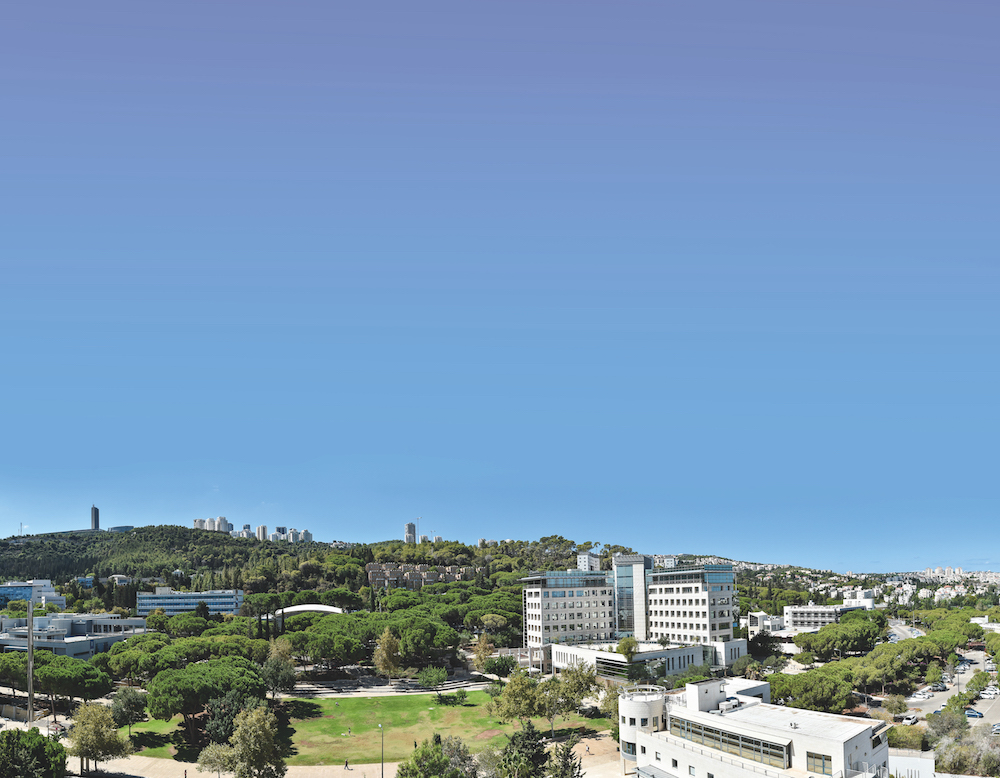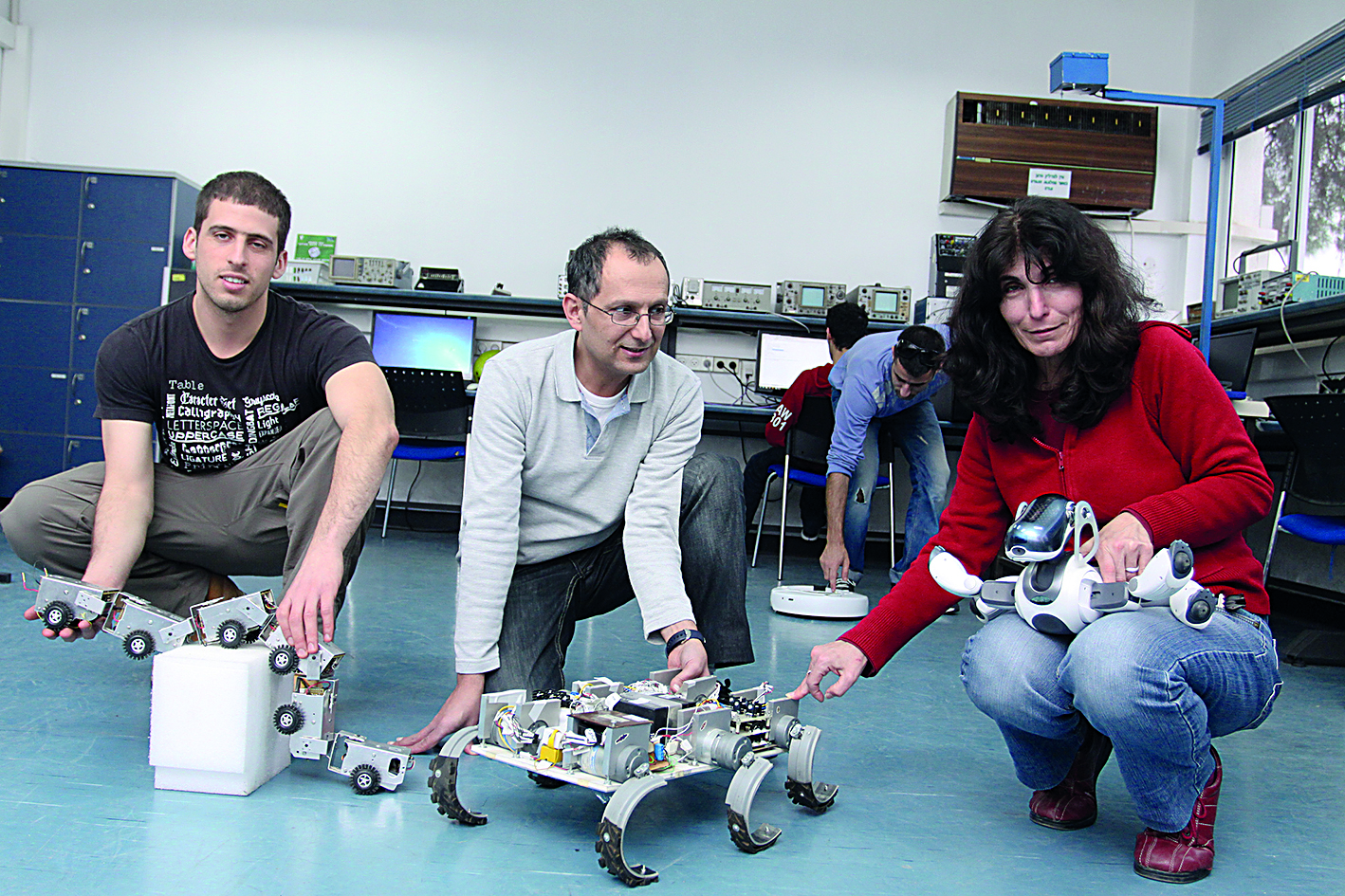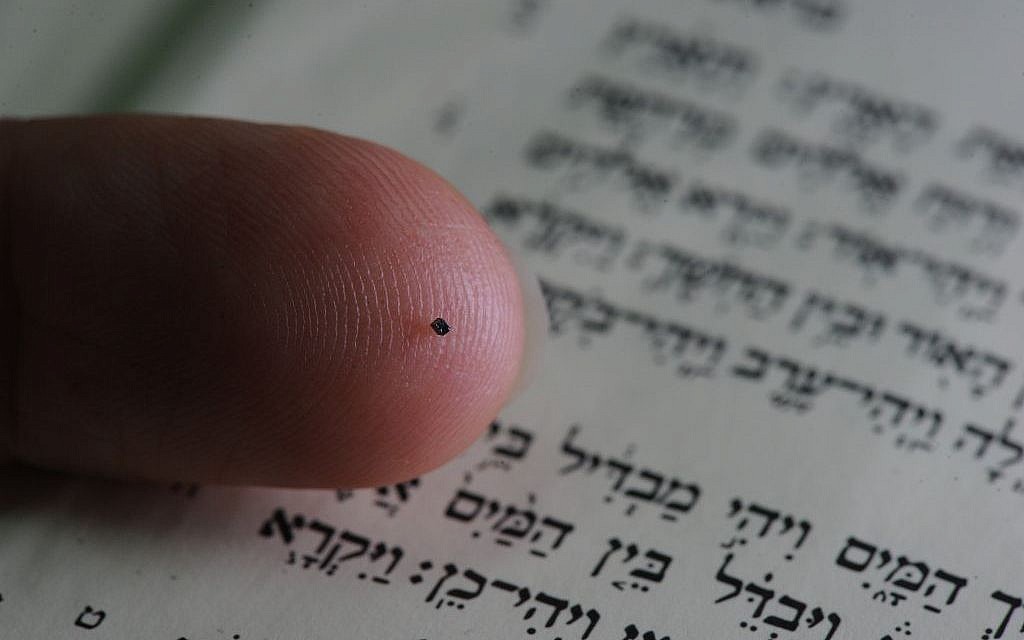Technion’s bright ideas prove anything is Mission: Possible
Haifa's Technion Institute of Technology is Israel in a nutshell, bursting with energy and ambition. Richard Ferrer enrols for an afternoon
Dah da da, dah da da, dah da, da-da, dah da da da, da, da!
Your mission, should you choose to accept it, is to visit the Technion Israel Institute of Technology in Haifa without humming the theme tune from Mission: Impossible.
On the leafy slopes of Mount Carmel lies the Middle East’s most celebrated campus, a place that’s buzzed with brilliant ideas for more than a century.
Get The Jewish News Daily Edition by email and never miss our top stories Free Sign Up
It’s where Dov Moran invented the USB memory stick, Rafi Mehoudar devised drip irrigation and Rafi Yoeli is making a flying car.
It’s where Dr Gavriel Iddan launched the Pillcam, making internal exams as simple as swallowing.
It’s where Professor Hossam Haick dreamed up the SniffPhone, which detects cancer on the user’s breath.
Had Technion been around during the Bronze Age, one of its boffins would have invented the wheel.

An astounding 70 percent of Israel’s high-tech industry managers are Technion graduates, responsible for creating more than 100,000 jobs and contributing countless millions to the economy. Step into the New York City High School for the Performing Arts in the 1980s and you’d expect to see the kids from Fame dancing on canteen tables during lunch breaks.
It’s much the same at Technion, with undergraduates joyfully flexing their grey matter in their downtime.
For instance, on the lawn outside the library during my visit, students were taking part in a challenge to drop a raw egg 40 metres without it breaking. Teams were judged according to number of eggs landing intact, speed, design and proximity to target.
The device that poached top prize was a UFO-like saucer made of sponges, empty water bottles and the sort of tiny parachute that comes with an Action Man. Three of its four eggs survived the fall. You can’t make an omelette without breaking eggs but you can win a Technion challenge.
This place is Israel in a nutshell – oozing energy, ambition and aspiration. Or as Gil Lainer, the amiable of head communications, proudly calls it: “The birthplace of the start-up nation.”
Surrounded by Star Wars memorabilia in his airy, first-floor office, Gil smiles. “From the moment I saw Han Solo [being] put into carbon freeze in Empire Strikes Back, I was hooked on science and technology. From that day I knew what I wanted to do.”
Gil speaks proudly and personally about his university, recalling a request from the late Shimon Peres to put the entire Bible on a nanochip as a gift for Pope Benedict. “We’ve come a long way from tablets of stone,” he says.
“Benjamin Netanyahu liked this idea so much he asked for the American constitution to be put on a nanochip as a gift for Barack Obama. It looks like a tiny grain of rice on your finger.”

Technion’s innovations are getting smaller as its campus gets larger, thanks to a recent £50million donation from The Helen Diller Family Foundation.
It’s also inspiring the Chinese, where many of the world’s tech giants are based. The Guangdong-Technion Israel Institute of Technology opened last year (“Guangdong is one of those small Chinese villages of six million people no one’s ever heard of,” smiles Gil).
A Chinese businessman donated the small matter of £100million to ensure the entire campus was built in two years flat.
Alongside its 18 academic departments, Technion’s next generation of innovators are hard at work in the Drive Accelerator incubator.
The university invests up to £100,000 in promising start-ups and gives them nine months to fly or flop. Out of last year’s intake of 15, nine have succeeded in getting off the ground. Among this year’s group is a shopping website called Pikwise, launched by Nathan Weinberger, who grew up in Stamford Hill. “I’m that annoying friend with a crazy idea he won’t shut up about,” the 29-year-old smiles.

His big idea gives consumers the freedom to find products in their own words. Using his unique “natural language processor”, Nathan’s website finds product that fits a shopper’s exact needs and price range.
He elaborates: “If you want to buy anything from toothpaste to a new iPhone, there is Amazon one side and Google on the other and the results of every search are pretty standard. We’re trying to get in the middle, delivering results that are perfect for specific needs.”
He adds: “Start-ups cannot compete with the big guys when it comes to PR and marketing, so Technion’s brand and brains are a big help. It validates what we do and helps us get a foot in the door. Last week we met with Walmart.”
My departure from the Drive Accelerator is delayed by a dodgy sensor, causing the electric doors to open and shut randomly like wonky windscreen wipers. I time my escape to avoid being wiped, as a student shuffles past me tutting under his breath: “Infrared triangulation would fix that.”
Like I said. Dah da da, dah da da…
Find out more about the Technion Israel Institute of Technology HERE

Thank you for helping to make Jewish News the leading source of news and opinion for the UK Jewish community. Today we're asking for your invaluable help to continue putting our community first in everything we do.
For as little as £5 a month you can help sustain the vital work we do in celebrating and standing up for Jewish life in Britain.
Jewish News holds our community together and keeps us connected. Like a synagogue, it’s where people turn to feel part of something bigger. It also proudly shows the rest of Britain the vibrancy and rich culture of modern Jewish life.
You can make a quick and easy one-off or monthly contribution of £5, £10, £20 or any other sum you’re comfortable with.
100% of your donation will help us continue celebrating our community, in all its dynamic diversity...
Engaging
Being a community platform means so much more than producing a newspaper and website. One of our proudest roles is media partnering with our invaluable charities to amplify the outstanding work they do to help us all.
Celebrating
There’s no shortage of oys in the world but Jewish News takes every opportunity to celebrate the joys too, through projects like Night of Heroes, 40 Under 40 and other compelling countdowns that make the community kvell with pride.
Pioneering
In the first collaboration between media outlets from different faiths, Jewish News worked with British Muslim TV and Church Times to produce a list of young activists leading the way on interfaith understanding.
Campaigning
Royal Mail issued a stamp honouring Holocaust hero Sir Nicholas Winton after a Jewish News campaign attracted more than 100,000 backers. Jewish Newsalso produces special editions of the paper highlighting pressing issues including mental health and Holocaust remembrance.
Easy access
In an age when news is readily accessible, Jewish News provides high-quality content free online and offline, removing any financial barriers to connecting people.
Voice of our community to wider society
The Jewish News team regularly appears on TV, radio and on the pages of the national press to comment on stories about the Jewish community. Easy access to the paper on the streets of London also means Jewish News provides an invaluable window into the community for the country at large.
We hope you agree all this is worth preserving.
-
By Laurent Vaughan - Senior Associate (Bishop & Sewell Solicitors)
-
By Laurent Vaughan - Senior Associate (Bishop & Sewell Solicitors)
-
By Laurent Vaughan - Senior Associate (Bishop & Sewell Solicitors)
-
By Laurent Vaughan - Senior Associate (Bishop & Sewell Solicitors)






















